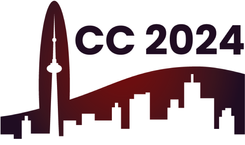Workshop 13: Computation for Real World Control Systems
Duration: Half day - afternoon
Room: Marine
Presenter: Daniel Abramovitch
Abstract:
Computation is an essential component of implementing any real world control system, but the details of how to make this work are often either left to the individual contributors to figure out or handed off to turn-key vendors. This workshop intends to provide insights, methods, and concrete examples into three major pieces of this subject. First, the workshop will present recent tutorial material (ACC 2023) from the author on real-time computing issues for control systems. This material explains the principal factors affecting the four computing chains inside a feedback system. After this overview, the workshop will spend time on an often-neglected area of computation for control system measurements, whether they be used in the control loop operation or in the system identification used in model building for control. Finally, the workshop will hone in on specific programming methods and components in the controller itself, describing efficient implementation methods and structures. Together these three thrusts should equip the participant with tools that they can apply almost immediately in their work. While the technology of computation constantly changes, the principles that lead any one of those signal chains to be a limiting factor remain the same.
